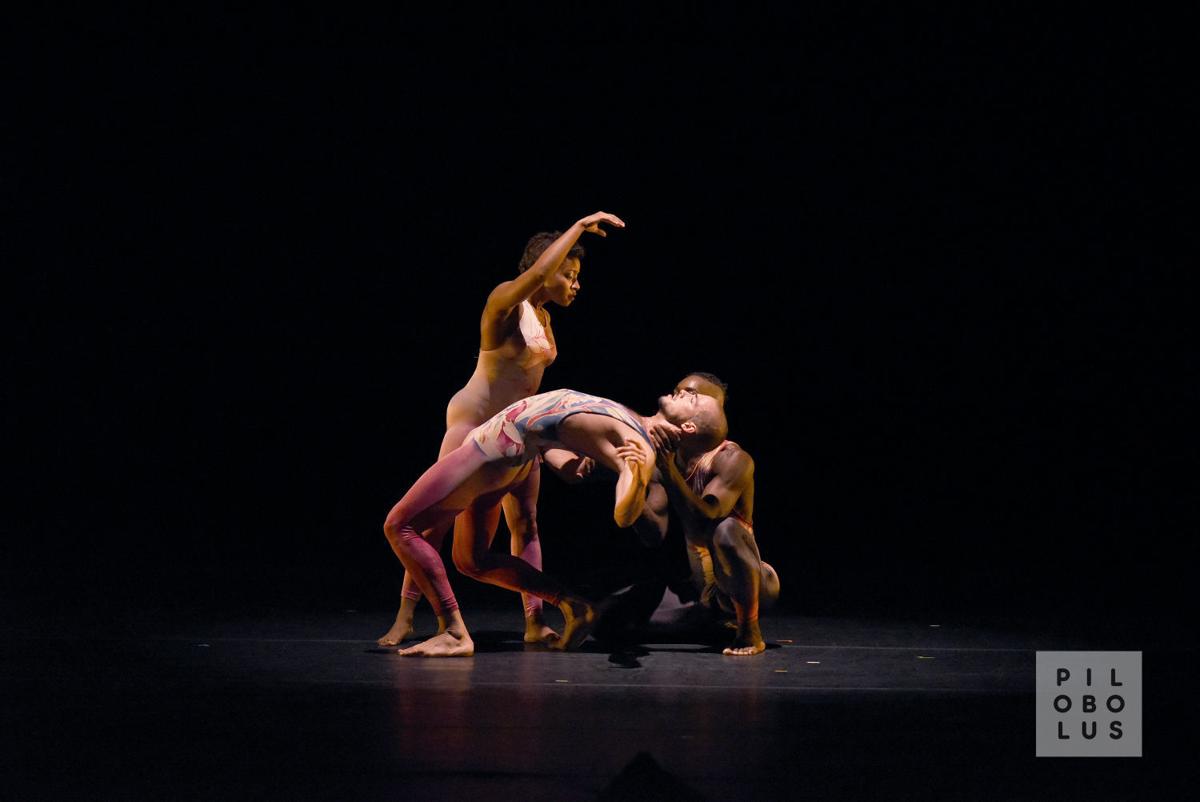Since the 1970s, that perpetually inventive Connecticut dance company, Pilobolus, has been a fan favorite in Tucson. Performing choreography that keeps defying the laws of gravity keeps our dance community engaged.
Sunday, March 6, the world-traveling Pilobolus (more than 64 countries stamped into its passports) will return to Centennial Hall. The program includes works that are collaborations with the comedy act Penn & Teller, the Grammy-winning band OK Go, and the Laurence Olivier Award-winning Venezuelan choreographer Javier De Frutos.
Equally unique is another piece, “On the Nature of Things,” performed by three dancers balancing on a column two feet in diameter.
Back in 1971, when cultural change was moving at warp speed and anything in the arts was possible, seven friends at Dartmouth College who didn’t know anything about dance decided to start a dance company.
“Those founders weren’t trained in dance, they were trained to think,” said Shawn Ahern, the company’s dance captain. He joined Pilobolus straight out of college in 2010.
“They began to apply their various disciplines of thought to dance. It is still like that here today. A place where we study athletics and philosophy.”
Pilobolus quickly became known for its imaginative dance imagery, for creating unbelievable combinations of leverage, balance and strength that kept everyone asking “How did they do that?”
“It does take an enormous amount of strength,” said Ahern. “But we aren’t doing extra workouts in the gym or anything. Lifting each other eight hours a day, 50 weeks a year, is our strength training.
“What is even more important than strength is having extreme sensitivity. Maybe compare it to wrestling. If you can sense the movements your opponent will make before he makes them, you can wrestle him to the ground.”
In creating their choreography and in rehearsals, the dancers are always helping each other like that, finding those precise balance points, giving and taking shifts in weight, always cooperating to create something whole from what often seems like a series of counter-moves.
“It can take years to learn this,” said Ahern. “Using cooperation instead of being an individual using sheer strength to force something to happen. That knowledge is what produces the magical feeling on stage.”
After more than 44 years of continuously creating choreography unlike anything else in the world of dance, Ahern admits with a laugh that it keeps getting more difficult. Collaboration and improvisation are the flint and steel that spark the company’s ideas.
“The vast majority of time spent developing a dance comes through improvisation,” he explains. “To create a piece for three dancers, we begin with three dancers out there just moving around, trying new ideas, until a special moment occurs.”
Then the trio will take that moment and expand on it, start moving it around, making it bigger, making it stand on one leg, then making it stand on one leg while adding something else.
The process has been winning Pilobolus awards and honors for decades, including being named last year as one of America’s Irreplaceable Dance Treasures by the Dance Heritage Coalition. Pilobolus also holds the 2011 Guinness World Record for fitting the most people into a Mini Cooper (26).





